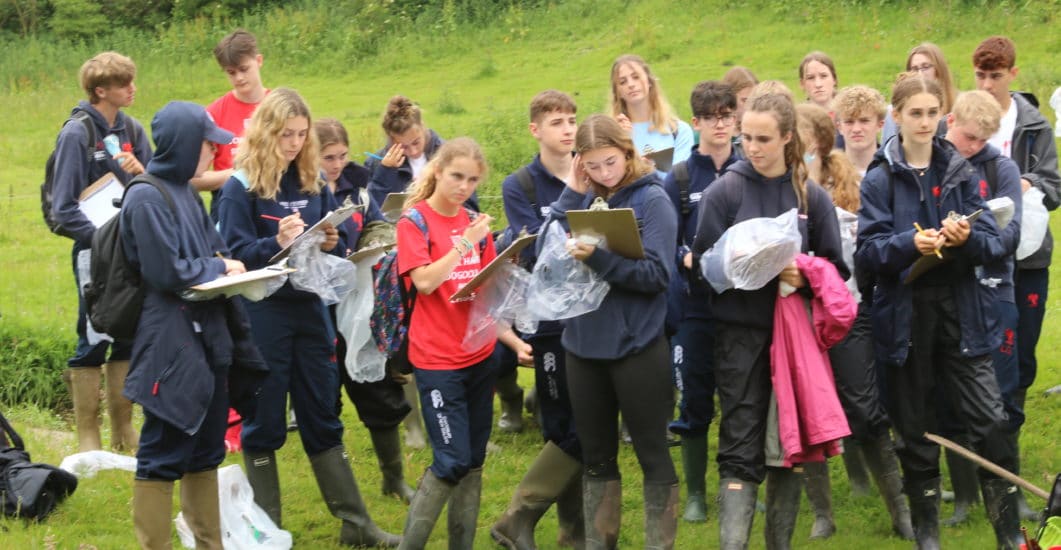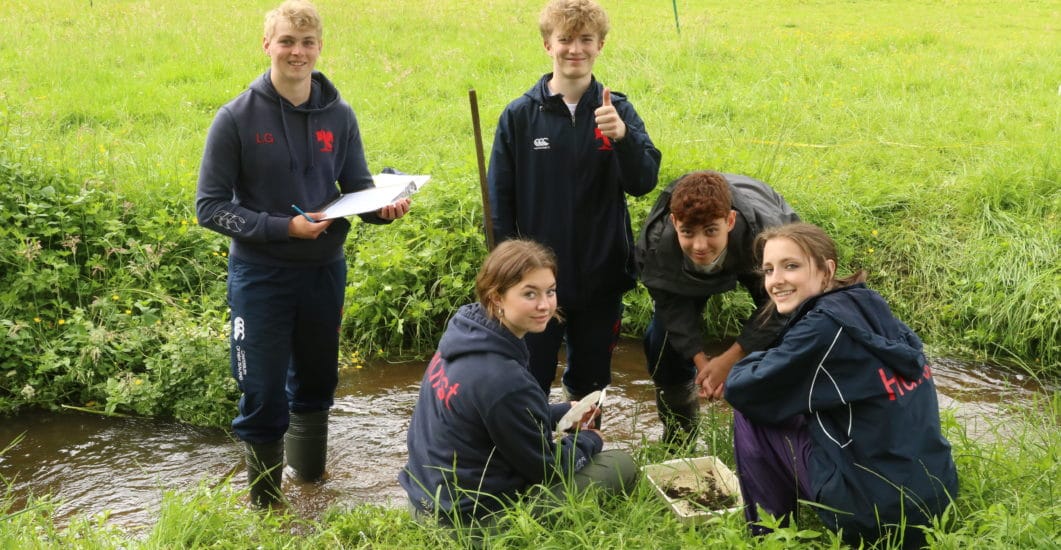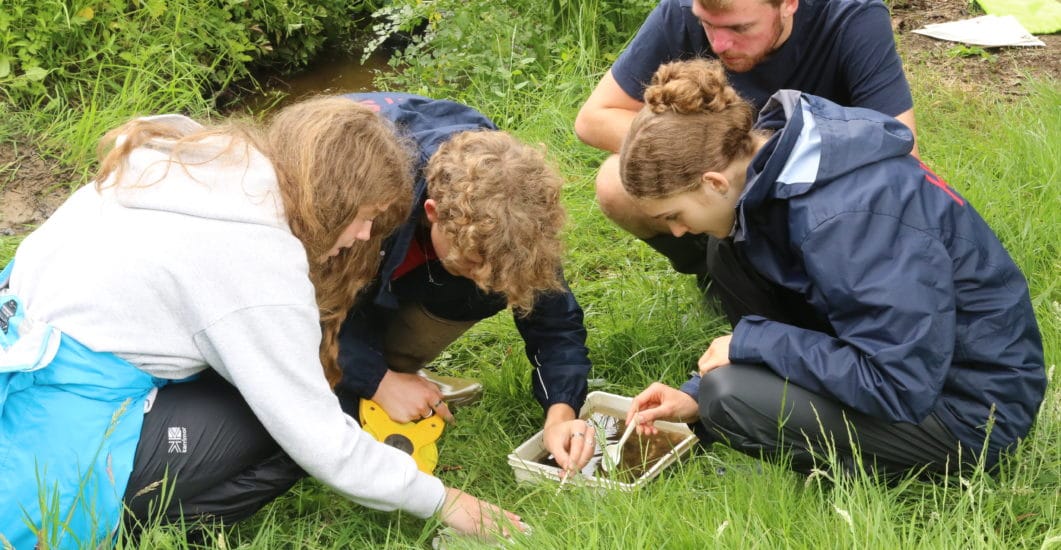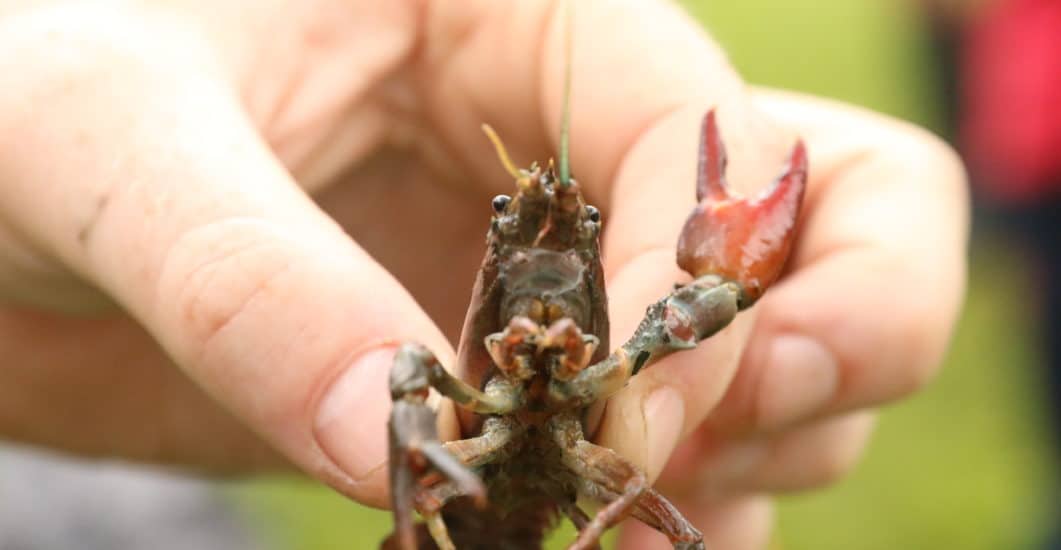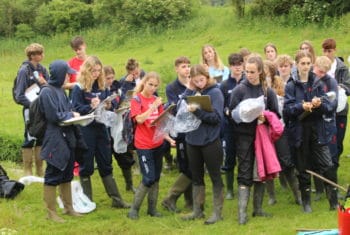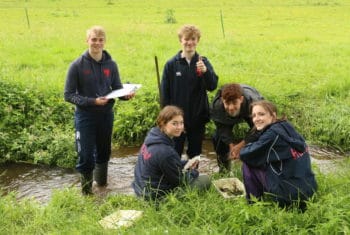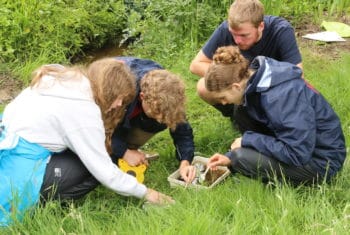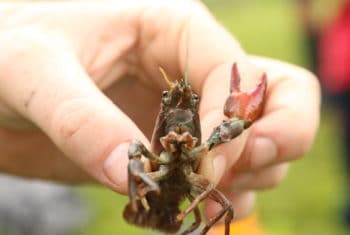Two non-residential field days were organised for Lower Sixth biologists during the penultimate week of the Summer term. Following successful Upper Sixth trips to Juniper Hall FSC , the Lower Sixth set off to expand their practical biology skills around biodiversity.
The first day involved students looking at coppicing and woodland succession in the Surrey Hills, overlooking the field centre. Hiking to the top of Lodge Hill, they learnt about woodland conservation and how rotational coppicing increases biodiversity. Having used a variety of equipment to measure various abiotic factors, they took lunch amidst spectacular views of Surrey Weald.
On the second day, students carried out various practical skills for assessments, including their extended investigation. At River Tillingourne they completed a freshwater study on how an abiotic factor of their choice affected the abundance of a chosen freshwater invertebrate. The site was beautiful with a small meandering river running through a field. Fun was had when using a kick sampling method and dipping nets to catch a variety of freshwater invertebrates. The students worked extremely hard and there was great excitement when some caught a number of fairly large crayfish. By the time they headed back to Hurst, exhausted, everyone had collected some excellent data and analysed their results.
“ Overall, both biology trips proved excellent days out when students learnt a great deal and accomplished everything they set out to do! ” Tim Leeper, Head of Sixth Form Biology
Find out more about Academic life in the Sixth Form at Hurst College
